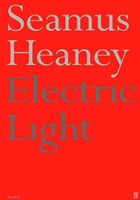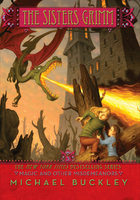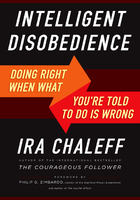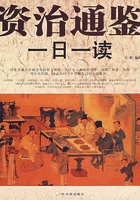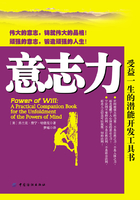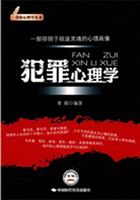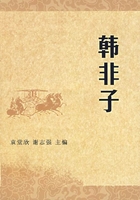THE COVER STORY of Fortune magazine on June 13, 2005, shows a picture of Michael Douglas in his signature role as Gordon Gekko, the merciless mercenary from Wall Street. While the movie Wall Street was based on fictional characters, the Fortune story of late spring 2005 talks about very real persons. Their orientation to the world of finance is captured in the title of the story: “Is Greed Still Good? The Hedge Funds Sure Think So!” Inside, the article's author, Andy Serwer, reports: “I once asked a trader why so many top dogs keep going after they become billionaires. ‘If I ever made $100 million, I'd call it quits,’ I told him. ‘That,’ he said, ‘is why you'll never make $100 million.’”
No more explicit celebration of human greed for its own sake can be satirized, caricatured, or even conjured by the fiercest critics of this way of thinking and being in the world. The narrow set of marketplace values that has come to dominate our political discourse grows out of a strategic vision that has been carefully nurtured and ceaselessly hawked over the last three decades. Which individuals are at the vanguard of this celebration of personal greed as the highest expression of the collective good? They are the nation's political leaders—or, at least, they are the Richelieus of this administration who whisper into the ears of the president and his cabinet. Karl Rove and Grover Norquist are the two most important among them, so it is worthwhile visiting what these well-positioned political thinkers say they are up to.
Karl Rove, universally acknowledged as the chief political strategist at the White House, has an intellectual hero that should shock those familiar with late-nineteenth-century U.S. history. It is Mark Hanna, the brains behind the disastrous presidency of William McKinley. Hanna was a key architect of a plan that ix orchestrated and celebrated a certain set of ideas—that the robber barons of that age could and should control the government, that private money could and should influence the choice and voting of members of the Congress, and that any regulatory mechanisms to check the power of the corporate titans should be vigorously opposed. That is Karl Rove's hero.
Grover Norquist is the other major brain behind the presidency of George W. Bush. He was dubbed the “Lenin of the Republican Party” by the Wall Street Journal. In an infamous interview with the Spanish newspaper El Mundo in early September 2004, this is what he said about the upcoming 2004 election:
Question: Who is going to win on November 2?
Norquist: It doesn't matter. We will control the House of Representatives, and probably the Senate. If Kerry wins, he will not be able to do anything that we do not want him to do. We will not give him money to spend. He will not be able to raise taxes. He will not steal our firearms. Even though we lose the White House, it will not be the end of the world.
Question: And if Bush wins?
Norquist: The Democratic Party will be forever doomed. If we take control of the legislature and the executive branch, we will reinforce our control of the judicial branch to direct it against the Democrats. We will bring about a modest limit of the ability of the people to initiate lawsuits against corporations, which will damage the lawyers who specialize in these cases, which is one of the props of the Democratic Party. We will accelerate the decline of the unions. We will cut funding to groups of public employees, like teachers, who are one of the great sources of Democratic votes. And we will begin to move the welfare state toward a private system, in pensions and health care.
Norquist's frank divulging of the Republican agenda is testimony to how free market values have achieved such legitimacy that such an all-out assault on the public sector hardly raises eyebrows. Milton Friedman, one of the premier intellectual defenders of free market fundamentalism, has argued that the interests of the majority are best realized by an economic system unfettered by government controls. Yet as Kahn and Minnich point out, even Friedman has conceded that there are things that “the market cannot do for itself, namely, to determine, arbitrate, and enforce the rules of the game.” The Fox in the Henhouse is a remarkably readable and systematic account of why this is the case and how the greatest danger to democracy lies in the privatizing trend that corrodes and erodes the public sphere. The fox not only siphons off resources from the public domain, thereby undermining the common wealth, but is now a dominant player shaping public policy designed to further its own interests.
Kahn and Minnich cut through the rhetoric of privatization, exposing the fallacies of efficiency and expertise that putatively only “unregulated markets” can offer. They show how, on the contrary, big business has actually cost the public more in tax dollars, subsidies to big business, loss of vital public services, and a dramatic weakening and shrinking of those public spheres in which ordinary citizens have traditionally exercised their rights in a democracy.
The power of large corporations has become such that even partnerships between government and business are inevitably imbalanced, promoting trade-offs that further sacrifice the public welfare for corporate welfare. Kahn and Minnich raise critical questions about who is truly served by this privatization trend—then searingly probe the consequences for us as ordinary citizens, taxpayers, workers, and consumers. They dismantle and reexamine taken-for-granted assumptions among Wall Street ideologues, and remind us of what is meant by the public good—when the common wealth is rooted in a democratic tradition in which there is no single dominant player. With this book, they hope to mobilize citizens to restore and reinvigorate this democracy.
C. S. Lewis once said, “Man's control over nature is really best understood as some men's control over others, with nature as the instrument.” This book has a parallel message: corporate control xi over private citizens is really best understood as corporate control over government, with privatization as its method. The privatizing foxes are the greatest danger to democracy, voraciously feeding off the public sector while deploying the rhetoric of what is best for the hens.
TROY DUSTER
Chancellor's Professor, University of California, Berkeley;
Director, Institute for the History of the Production
of Knowledge, New York University


